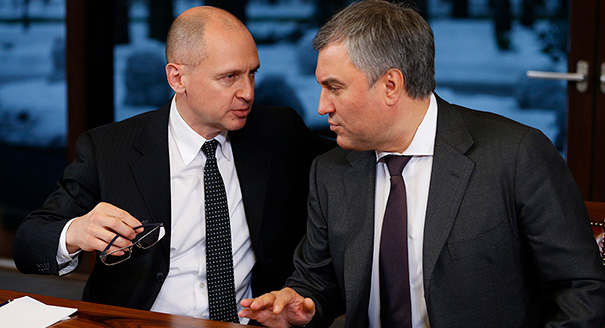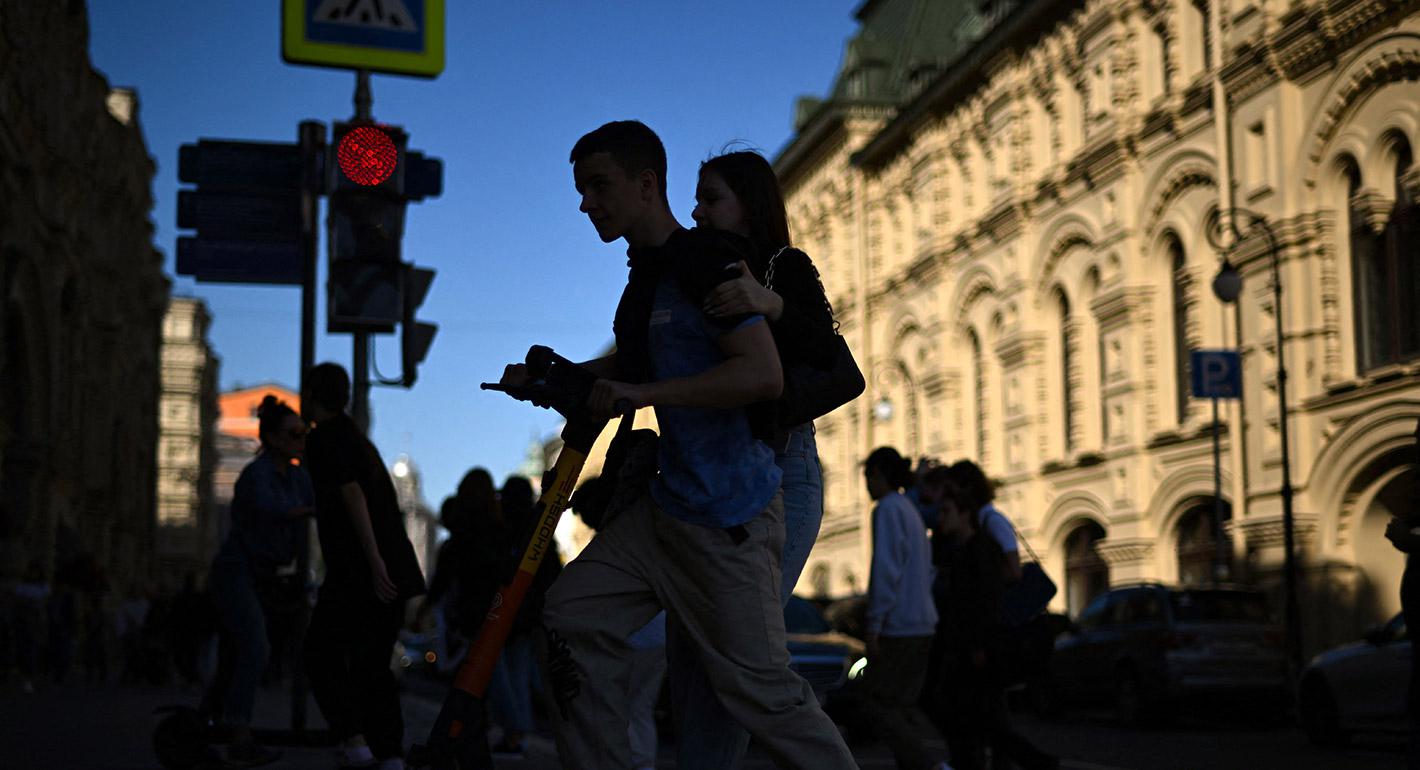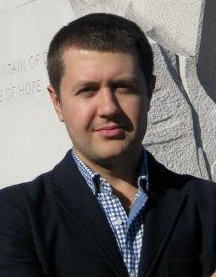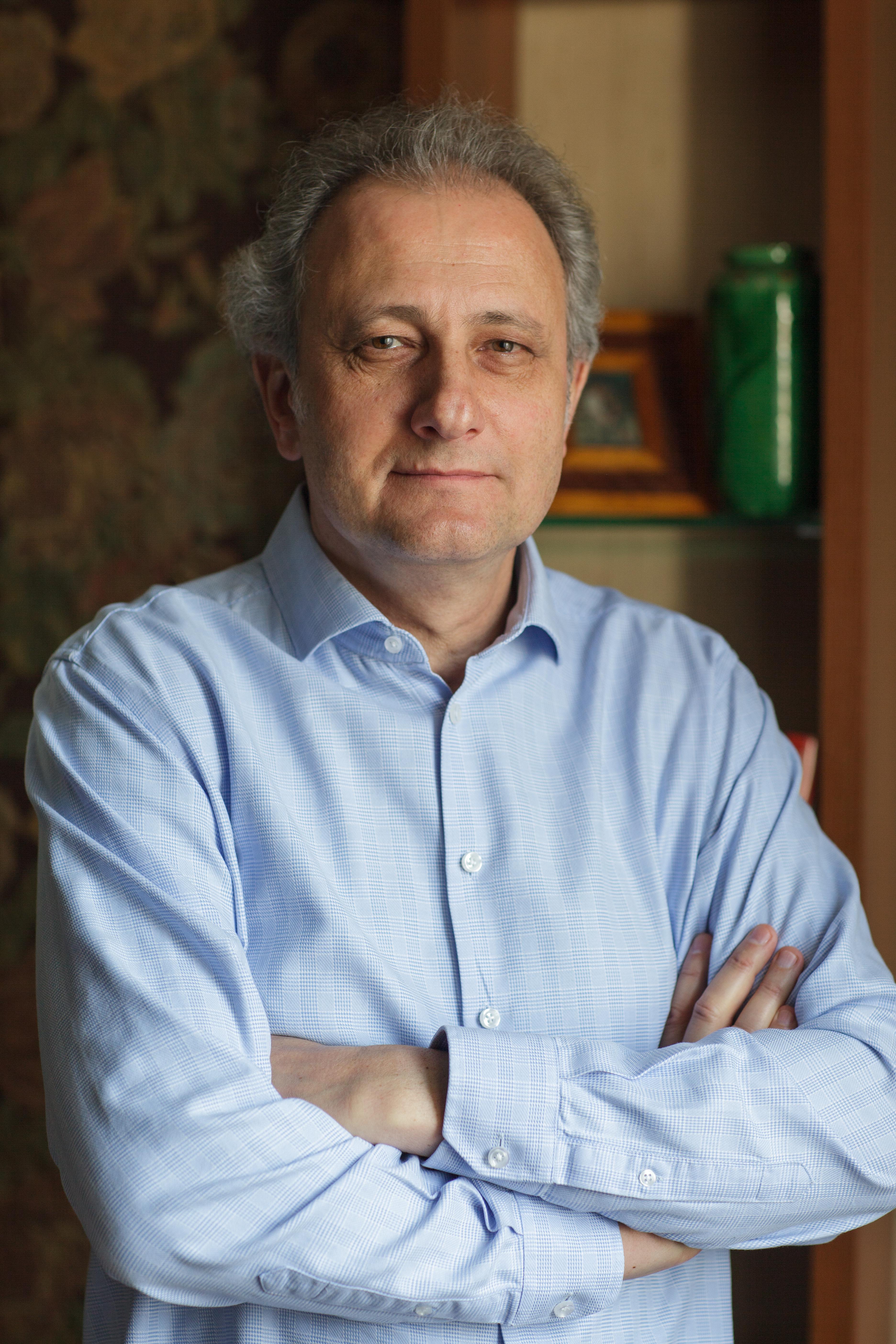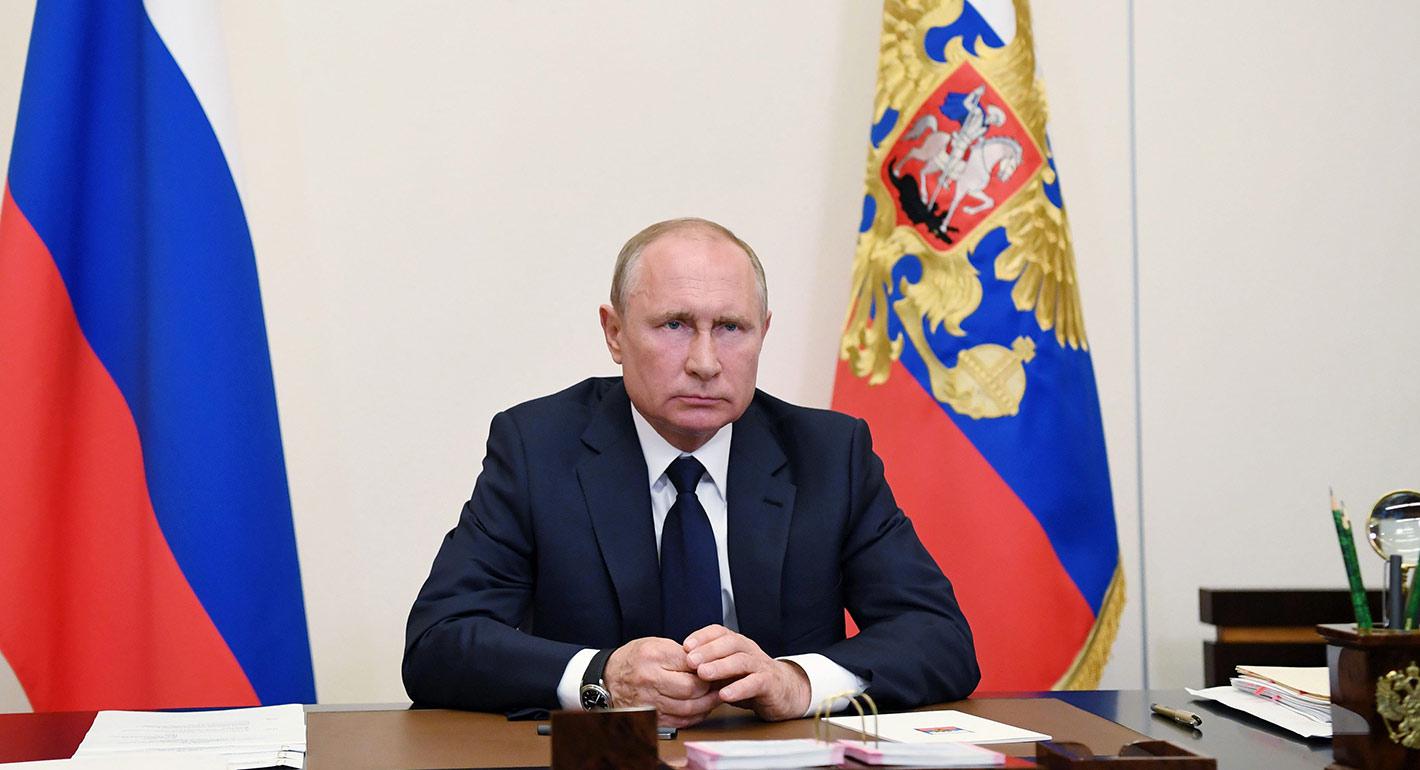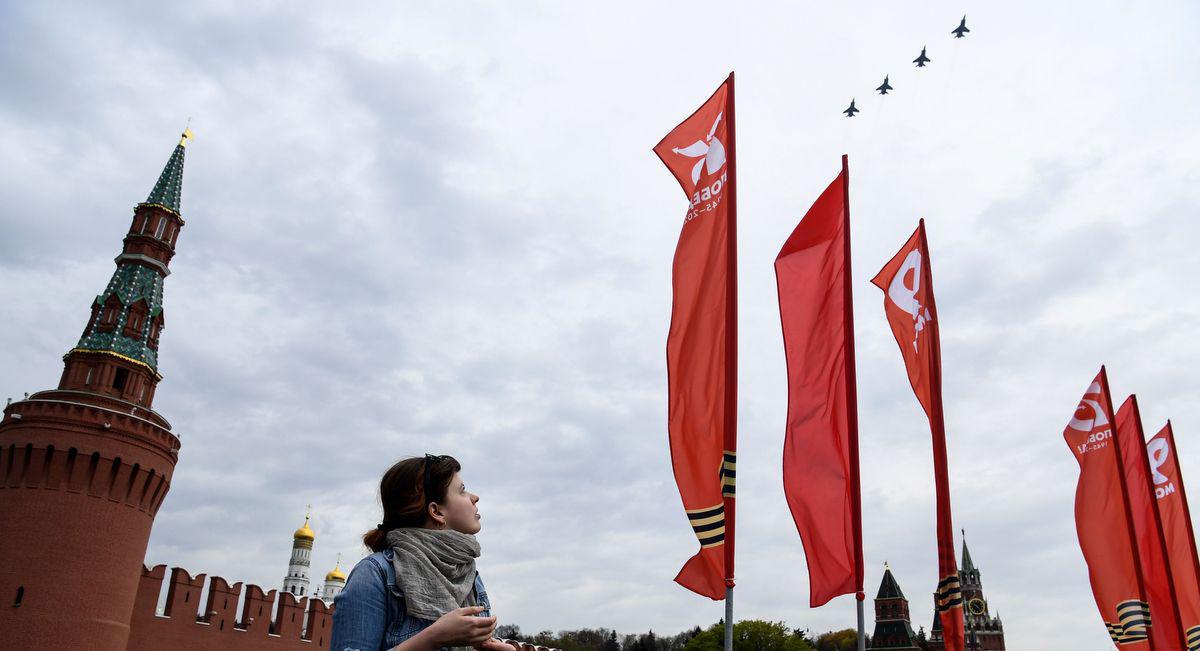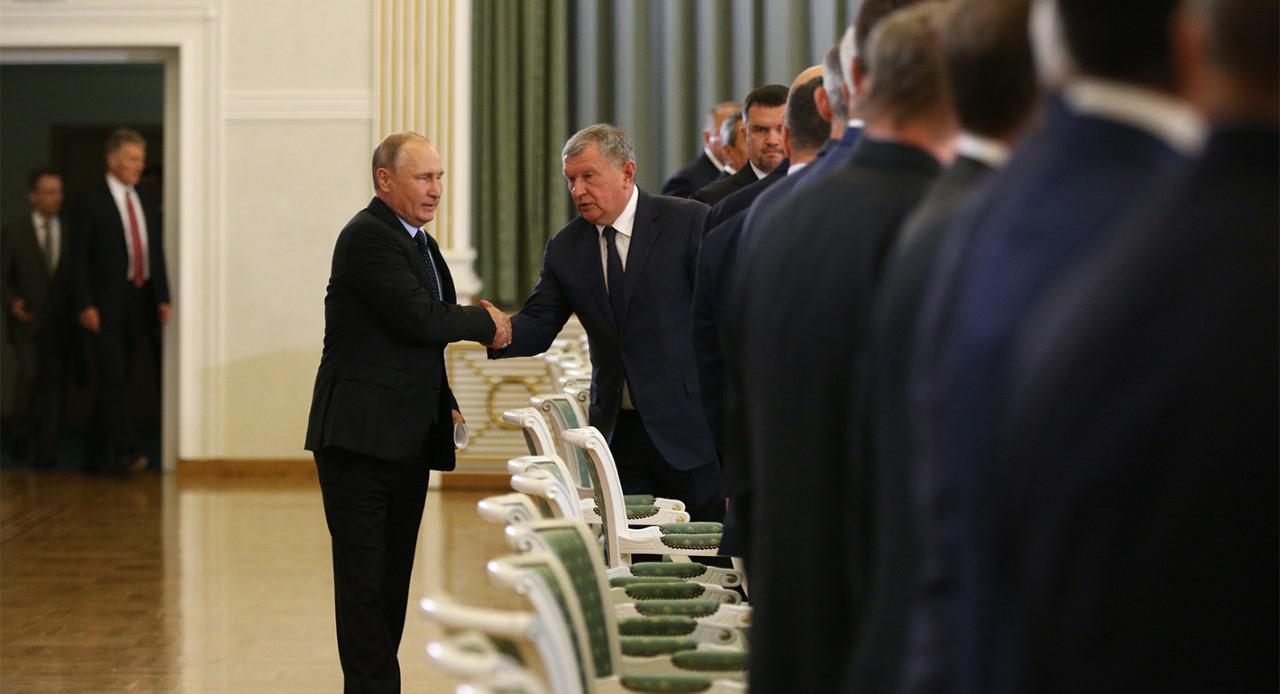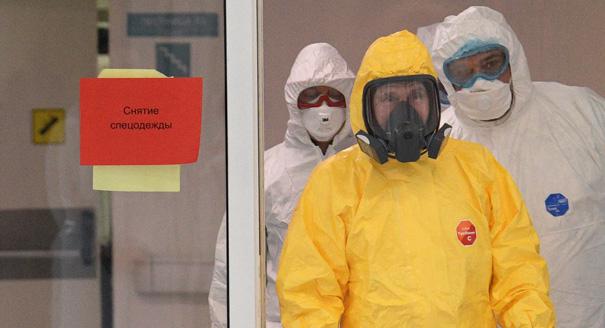Vladimir Putin’s power vertical has always been an extremely simple construct: the presidential administration deals with everything—all party, parliamentary, and personnel issues—no questions asked. Because a second source of authority would undermine its top-down system, the Kremlin works hard to suppress attempts to create alternate centers of power.
Recently, however, a power struggle has emerged between Duma Speaker Vyacheslav Volodin, the former first deputy chief of staff of the presidential administration, and his successor Sergey Kiriyenko—and their conflict is threatening to open up a rift in the power vertical.
The first deputy chief of staff wields much more power than the title suggests. This person has traditionally controlled parliament, mainstream political parties, pro-regime public organizations, as well as an army of loyal political analysts and sociologists. The first deputy chief of staff also creates official ideology and determines what kinds of freedoms the state will allow its citizens.
Because of the importance of the position, the continued functioning of the regime depends on the first deputy chief of staff quietly handing over the keys to the presidential administration to his successor. When he moved on to become Duma speaker last October, Volodin chose not to do this, instead attempting to retain influence over parliament and the ruling United Russia party.
Volodin has been able to maintain a degree of personal control over parliament by curtailing his former employer’s influence on the Duma. According to some reports, he has limited the access of presidential administration members to Duma executive meetings and tried to get his man—former leader of the Russian Federal Agency for Youth Affairs Sergey Smirnov—elected to be the presidential administration’s Duma representative.
He has also been able to curry favor among pro-regime parties in parliament, effectively turning the Duma into the second source of power in domestic policymaking after the presidential administration. Furthermore, Volodin has retained control over an army of political analysts and strategists who previously collaborated with him in the Kremlin.
Kiriyenko’s hands-off approach to his work has made Volodin’s activism possible, allowing the Duma to expand into spheres that had traditionally been controlled by the first deputy chief of staff of the presidential administration.
As a result, the Duma now addresses a wide variety of issues, including holding hearings on subjects like the wave of reconstruction taking place in Moscow. In the old political configuration, only the presidential administration would have the authority to deal with such issues.
Volodin’s moves haven’t gone unnoticed: Vladimir Putin, elite power players, and local interest groups are beginning to accept the Duma’s new role, as well as Volodin’s importance in resolving political issues.
On the other hand, regional elites are now complaining that they are not receiving specific guidelines from the presidential administration. Similarly, local officials and politicians are starting to grow nostalgic for the Volodin era, when the rules were straightforward and spelled out for them. For their part, Duma members and political analysts close to the speaker fuel this nostalgia by suggesting that the amateurs in the Kremlin are not doing things properly, but that fortunately their more experienced comrades are ready to lend a helping hand.
In response, the presidential administration has tried to seize back control over some institutions. Notably, there are indications that certain elements of United Russia are being influenced by the presidential administration: high-profile members of United Russia who are loyal to Volodin chose not to participate in a recent forum hosted by United Russia Supreme Council Chairman Boris Gryzlov, effectively referring to it as an individual effort. “These are discussion groups whose conclusions are not the official position of the party,” said Deputy Duma Speaker Sergey Neverov in an interview with Kommersant Daily. Indeed, it now seems that United Russia has started to split into factions.
Statements made by Andrey Chepurnoy, the head of an organization of disabled Soviet-Afghan War veterans, further illustrate the standoff between Volodin and Kiriyenko. Addressing Vladimir Putin at a meeting of the group’s organizing committee, Chepurnoy said that Afghan war veterans in the regions had received letters signed by a member of the Federation Council calling Volodin Putin’s successor. Because Putin doesn’t allow this sort of speculation, it’s highly unlikely that the subject of Chepurnoy’s speech was accidental. In fact, he almost certainly got approval from the Kremlin’s event organizers.
And more confrontations can be expected in the future: the Kiriyenko faction has conceded too much ground and will find it increasingly difficult to win it back from Volodin in the lead-up to the 2018 presidential election.
